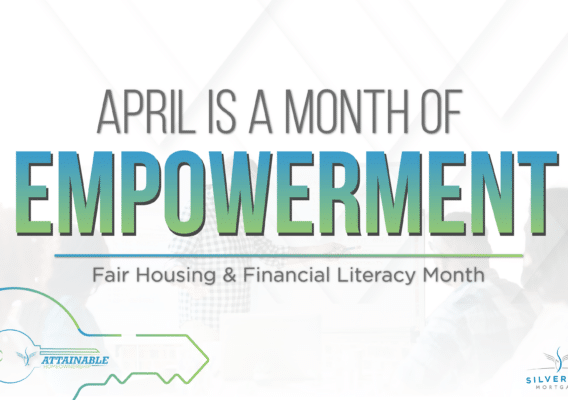The home buying process is extensive, but you’re powering through! You’ve done everything you’re supposed to do in order to get to the closing table, from house-hunting to appraisals to sending in the documentation for your mortgage. But you haven’t crossed the finish line just yet! In this post, we’re going to break down what you should NOT do leading up to your closing day so that there are no roadblocks as you near the end of your homebuying journey.
Ignore your lender
Your lender is working hard to prepare all the necessary documents for your closing. When additional information is needed, they will typically contact you pretty quickly. It’s in your best interest to get back to them as soon as possible. The home buying process can be a stressful time in your life and while you may have a lot on your plate, don’t jeopardize how far you’ve come by delaying correspondence with your lender. Not responding in a timely manner to your lender when they reach out may result in a delay in the process, which is the last thing you need this late in the game.
Pay bills late
There’s a good chance that the reason you were approved for your home loan in the first place is because of your upstanding payment history. With payment history typically accounting for about 35% of your credit score, one late payment can bring it down. Thinking that having a closing date means you can be lax about when you pay your bills could be a costly mistake. Be sure to remember to pay your bills on time!
Quit or change jobs
Even if a new job means a pay raise, your lender needs to verify your employment with several months of pay stubs. If you can help it, stay put with your current employer so that all the information you provided initially stays relevant. If a new opportunity does come up before you close on your home, try and wait until keys are in hand to make the change. If that isn’t possible, contact your loan originator as soon as possible to let them know of this new development. Be aware that making a career change will most likely delay your closing but isn’t a deal-breaker.
Apply for new credit
Try to avoid making new purchases or opening lines of credit while you wait to close on your loan. Your credit was a huge factor in getting approved for your loan and applying for a line of credit before everything is finalized can have a negative impact on the process. It’s natural to want to start making those purchases that make a house feel like a home. Whether it’s a new couch, dining room set, or appliances – it seems like a no brainer to use your credit for such items. However, holding off until after you’ve closed can mean the difference in a successful deal or throwing a wrench in the plan. It’s not a risk worth taking this late in the game.
Close lines of credit
While closing unused credit accounts or transferring the debt to a credit card with a lower interest rate is generally a good idea, it is best to wait until after your closing date. It’s important to realize that your credit is a delicate balance that has been reviewed in detail for the purpose of being approved for your home loan. Closing a line of credit can affect your debt ratio and become a red flag to your lender. Since you can’t guarantee that these moves won’t affect your credit score, it’s best to let it be until after you’ve closed on your home.
Co-sign a loan with someone
When you co-sign a loan for someone there are certain risks that you should be aware of, one being that you are agreeing to pay that borrower’s debt if he or she defaults on the loan. While doing so is completely up to your discretion, it is not something you should consider during your homebuying process. In addition to having another credit inquiry affect your credit, you’ll also be increasing your debt-to-income ratio, two things you should avoid until your closing has been finalized.
Deposit or transfer large amounts of money
You’ll have to provide your most recent bank statements before you go to closing. If you do have a large or unusual deposit before closing, be prepared to provide complete documentation of where the money came from. According to Fannie Mae®, a lender must evaluate large deposits to ensure that they fall within the acceptable guidelines. Basically, if you receive a deposit the size of your paycheck or larger and can prove that it came from a legitimate source such as the sale of a boat or automobile, then you should be fine. However, if thousands of dollars just show up in your account and can’t be explained, your entire income stream may be questioned, delaying your loan closing.
Change bank accounts
Lenders look for two things when deciding whether to approve you for a loan: where your money is coming from and how long it has been in your account. During the homebuying process, they have literally made it their job to become familiar with your finances and bank history. While you may have great reasons to switch to a different bank, doing so could delay your closing. If there’s not a dire reason for you to change banks in the middle of your homebuying process, wait until closing day has passed.
Apply for a short term loan
As you prepare to make perhaps the biggest purchase of your life, taking out a short term loan may seem like a good alternative to spending your cash on hand. However, while these loans are generally for small amounts, they also typically come with a higher annual percentage rate. Aside from putting yourself in a less-than-ideal situation, this could also negatively affect your credit score or show a large bank deposit that requires an explanation at a crucial time in the loan process. The key to a smooth closing is keeping your finances as close as possible to what they were when you were originally approved. Lenders do not want to feel like they are taking a gamble. In fact, it’s the complete opposite: they want financially reliable and steady borrowers.
Provide false information
Be truthful with your lender. The mortgage process can be daunting and exaggerating on your loan paperwork may seem like an innocent enough way to strengthen your odds of approval, but lenders have plenty of ways to fact check your information. What you may consider being an insignificant stretch of the truth or even an honest mistake can cause major problems with your loan. As your closing day approaches, your lender may reach out for additional information. Always be honest and forthcoming with your responses. What may seem like jumping through hoops is standard protocol designed to protect both the lender and you.
Remember, don’t rock the boat!
You’ve gone through a lengthy process to prove that you’re ready for this chapter of your life; be patient and know that as soon as you’ve closed, you can resume your life as normal. After closing, you will have more flexibility to change banks, consolidate credit, and start filling your home with everything that is going to help you get settled. Oh, and congratulations, homeowner!
You Might Also Like

Navigating the Mortgage Maze: The Mortgage Process Simplified

April: The Month of Empowerment

